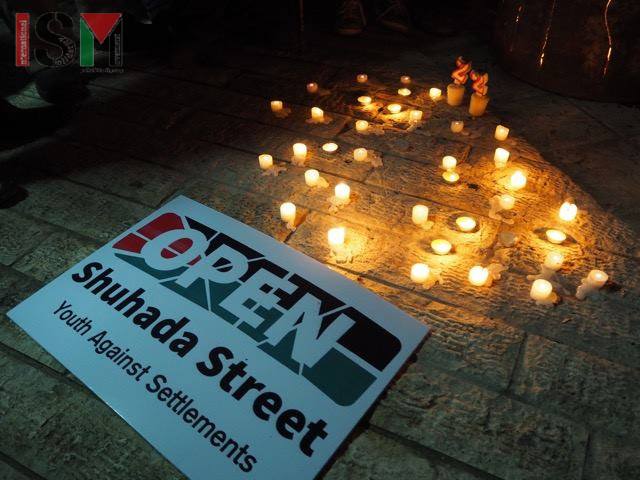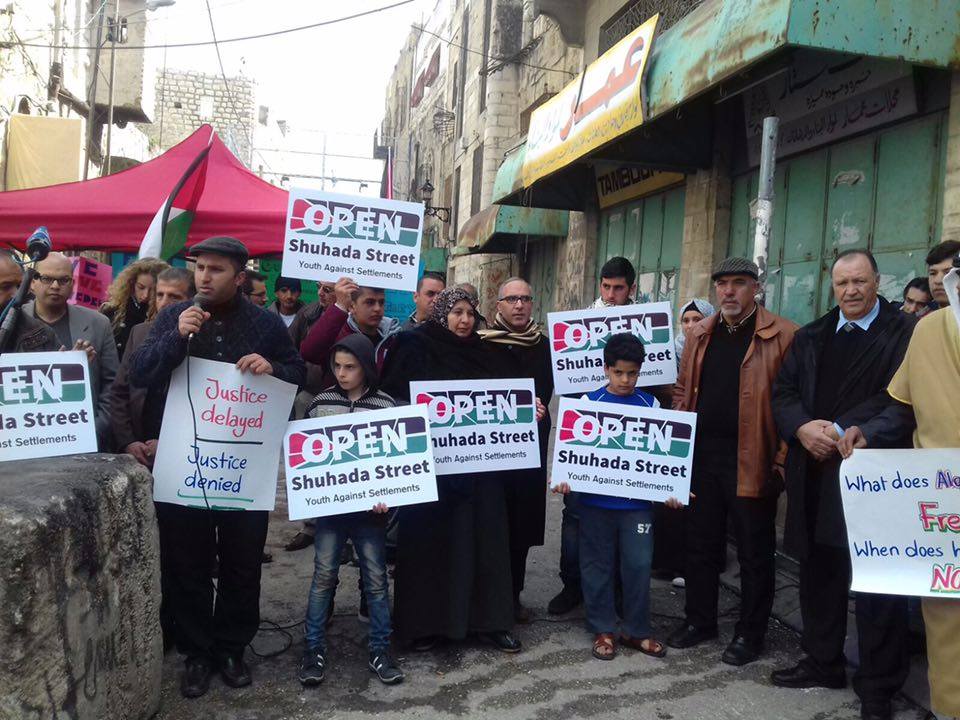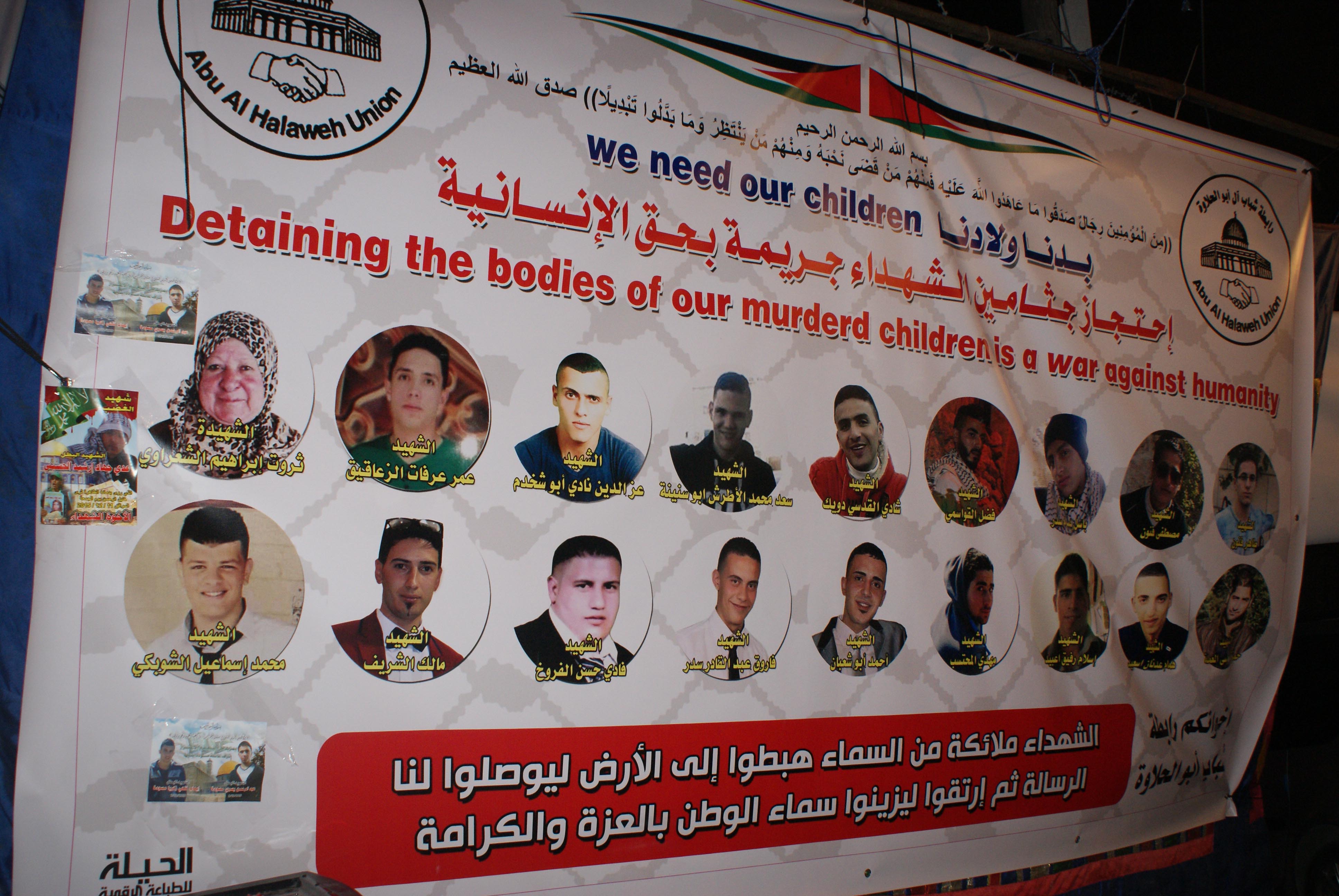Category: Press Releases
-
Aggressive settler interrupts nonviolent commemorative event hosted by Youth Against Settlements
24nd February 2016 | Youth Against Settlements | Hebron, occupied Palestine Notorious settler Anat Cohen interrupted a peaceful movie screening, which was hosted by Youth Against Settlements to commemorate the victims of the Ibrahimi Mosque Massacre in 1994. Every night, Palestinians gather around a bonfire in the Salaymeh neighborhood of occupied Hebron to keep watch…
-
Youth Against Settlements holds press conference in front of Shuhada Street checkpoint to announce 2016 Open Shuhada Street campaign
20th February 2016 | Youth Against Settlements | Hebron, occupied Palestine Youth Against Settlements held a press conference in front of the Shuhada Street checkpoint to announce the beginning of the Open Shuhada Street Campaign. Over a hundred people attended. Palestinian TV, AL-Quds TV, and other local and international media organizations were present. Youth Against…
-
Video: Willful Killing
20th February 2016| ProPal | Occupied Palestine This video produced by ProPal shows examples of Israel’s ongoing policy of executing Palestinians and how Israeli politicians instruct and encourage Israeli forces to shoot to kill any Palestinian suspect.



